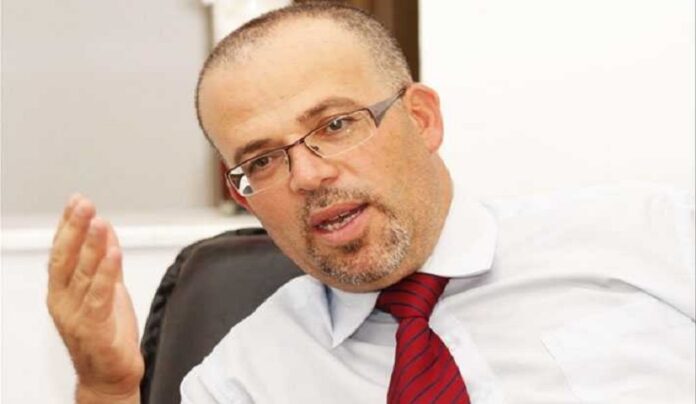In recent days, the Ennahda Movement witnessed the bleeding of mass resignations, which amounted to 131 resignations last Sunday, including deputies from the suspended parliament, deputies from the former National Constituent Assembly, members of the Shura (Consultation) Council, as well as a number of central, regional and local officials, due to what they considered “failure in the battle for internal reform.”
The resigned people reasoned that they chose to give priority to their national commitment to defending democracy by liberating themselves from the constraints caused by belonging to the Ennahda, holding the leadership of the movement responsible for the deterioration of the general situation in the country that led to the opening of the way for a coup against the constitution and the institutions emanating from it.
The internal disputes within the movement and the heavy-scale resignations are not unexpected, since the movement has been floundering for a long time in severe conflicts that reached their maximum after the decision of the movement’s president to dissolve the executive office and then form a new office, a decision that was dropped by the Shura Council, in addition to the decision to freeze the membership of Imad Hamami, who was referred to Internal Rules Committee.
These accumulations were among the reasons why even first-rank leaders chose to resign so that they do not collide with their president, who continued the approach of “individual management,” as some leaders put it.
According to Samir Dilou, a member of the group of 131 who have resigned, the decision to resign came from a collective conviction and given the impossibility of reform. Convergent positions were formulated in its declaration statement…“We are no longer concerned with the internal affairs of the Ennahda Movement, and we are not in the process of inciting its departure…”
Regarding the position of the movement’s head, Rached Ghannouchi, concerning these resignations, which may cause the end of the movement, Samir Dilou said that the latter did not contact any of the resigning, “and I don’t think he will.”
He also added that the decision was not collectively prepared in advance. Rather, it was a conviction that gradually became entrenched in the impossibility of reform and the full responsibility of the Ennahda Movement for its current isolation and in general for the conditions that led to what happened on July 25 and beyond.
Regarding the possibility of the establishment of a new political party by the group of 131 who resigned from Ennahda, Samir Dilou replied that although some are apprehensive that the resignations will be a mere redeployment and positioning of the Ennahda Movement to break its current isolation, the issue of reorganization is on the table, but it needs a deep dialogue about the identity of the new entity and its being a party or other flexible mechanisms of modern organization and the intellectual reference on which it is based, and added: “Personally, I am not interested in an entity that sits to the right of the Ennahda Movement or reproduces its experience…”
Pointing to the hidden reasons behind this failure, Dilou indicated that the institutions of the Ennahda Movement slacked and internal democracy became formal, and the exclusivity of opinion and reliance on parallel institutions led to the marginalization of dissenting opinion. “Marginalizing dissenting opinion is no longer an internal partisan issue as long as it leads to choices, policies and practices that have strongly contributed to bringing the country to this state.”
Despite these heavy resignations from the Ennahda Movement, Samir Dilou believes that “the end of similar movements does not come with the departure of a number of its affiliates – regardless of their number and positions in them – but rather by the extent to which they are able to dig into their references to update and revive, and to develop their institutions in response to the requirements of sound governance and transparency, as well as by renewing their discourse and image and not resisting the laws of development that impose renewal and youth, otherwise it will turn into something like a sect headed by the leader of the sect (Gourou..!)”
Dilou also confirmed that the resigned people were no longer interested in a quarrel with any of Ennahda‘s affiliates, adding that “Rached Ghannouchi is the head of the party to which we used to belong and we had no personal disagreement with him. We were (relatively) constrained by the reservation imposed by party affiliation, and later we will deal with what is required by our assessment of the correctness of saying and doing or not, without the previous position having an impact on the subsequent position!”
Adapted and translated from an interview with Samir Dilou
Published in Maghreb Newspaper on September 28, 2021.











